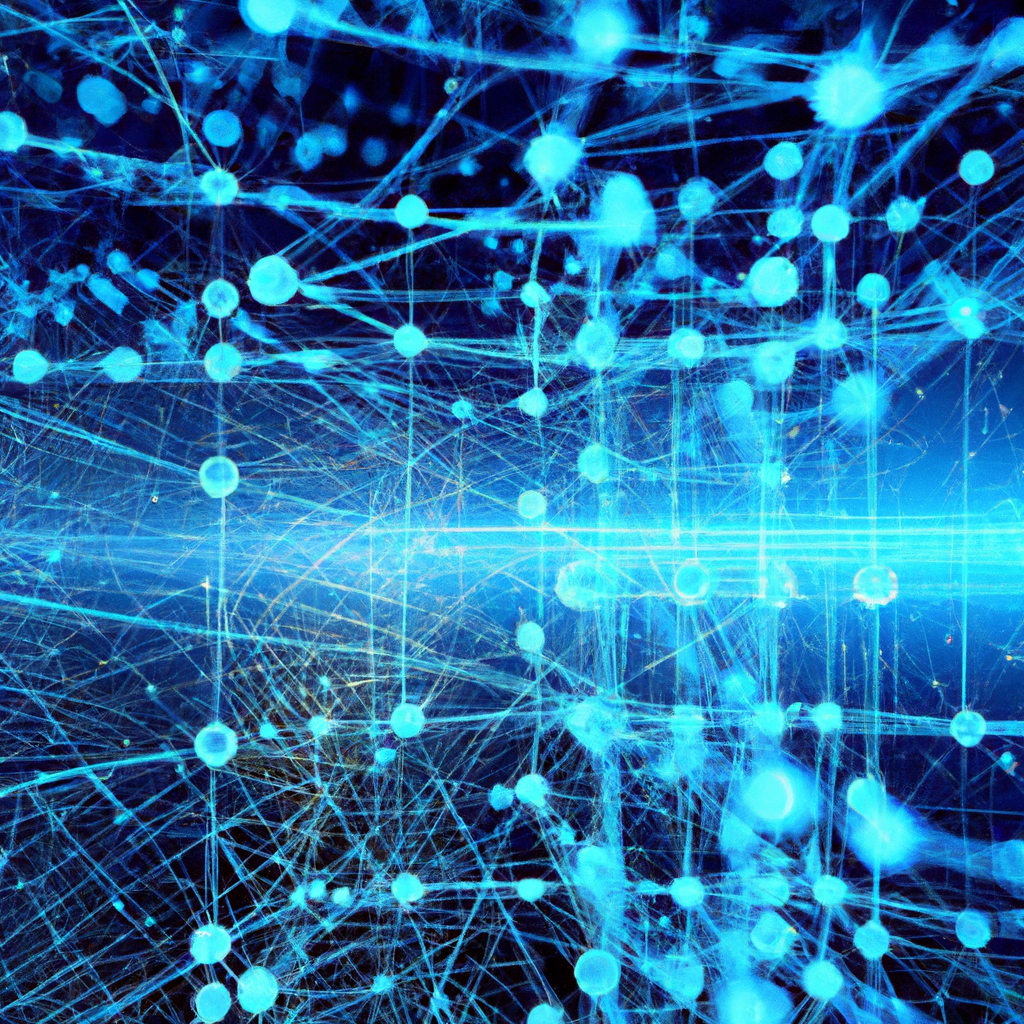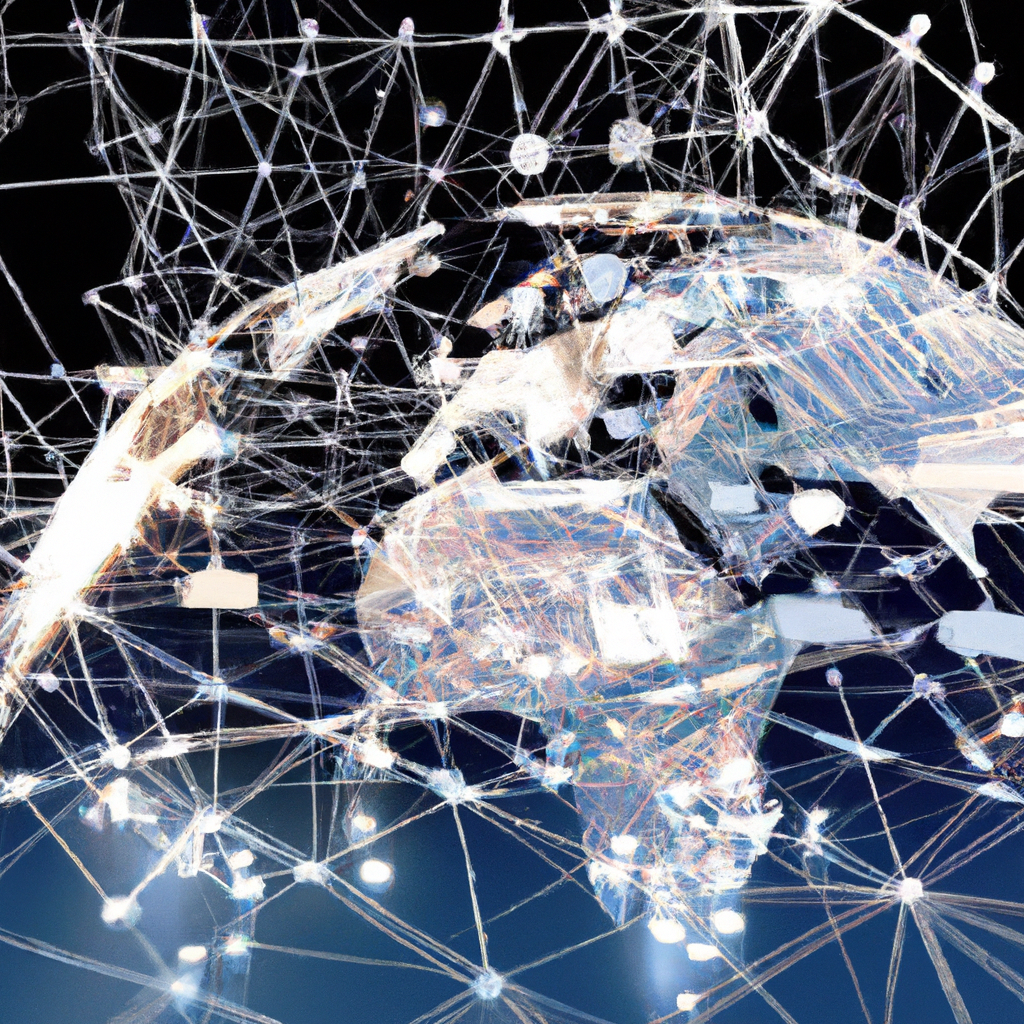Within the fast-paced world of digital content material, the rise of synthetic intelligence (AI) has opened up new avenues for creativity and effectivity. Nevertheless, alongside its many advantages, there’s a rising concern concerning the potential for AI-generated content material to unfold misinformation. With algorithms changing into more and more subtle, it is changing into more durable to tell apart between actual and fabricated data. This raises necessary questions concerning the ethics and implications of counting on AI to supply factual and dependable content material. On this article, we are going to discover the considerations surrounding AI-generated content material and its potential impression on society.
The Rise of AI-Generated Content material
Definition of AI-generated content material
AI-generated content material refers to any sort of content material, together with articles, movies, photographs, and audio, that’s produced by synthetic intelligence programs with out direct human involvement. These programs, powered by superior algorithms and machine studying, can generate content material that mimics human creation in a extremely environment friendly and automatic method. AI-generated content material has turn out to be more and more prevalent lately, with developments in AI know-how enabling it to supply content material that’s indistinguishable from human-created content material.
Developments in AI know-how
The sphere of synthetic intelligence has witnessed important developments lately, resulting in the rise of AI-generated content material. AI programs now possess the flexibility to research huge quantities of information, acknowledge patterns, and generate content material primarily based on this evaluation. Machine studying algorithms have improved tremendously, permitting AI programs to study from big datasets and produce content material that’s not solely correct but in addition tailor-made to particular audiences. Moreover, pure language processing capabilities have superior, enabling AI programs to generate written content material that’s coherent and contextually related.
Rising use in numerous industries
The usage of AI-generated content material extends past one particular trade and has discovered purposes in numerous sectors. Within the information and media trade, AI-generated articles have turn out to be a standard observe, with many information organizations counting on automated programs to supply information tales shortly and effectively. AI-generated content material additionally performs a major function in advertising and promoting, the place personalised commercials and promotional content material are tailor-made to particular person customers. Moreover, industries resembling leisure, e-commerce, and social media make the most of AI-generated content material to reinforce consumer experiences and supply personalised suggestions.
The Downside of Misinformation
Definition and examples of misinformation
Misinformation refers to false or deceptive data that’s unfold with the intention to deceive or manipulate people. It could possibly take numerous varieties, resembling fabricated information tales, deceptive photographs or movies, and false claims or statistics. Examples of misinformation embody the unfold of conspiracy theories, the promotion of false well being treatments, and the dissemination of politically biased data.
Influence of misinformation on society
Misinformation poses a major risk to societies as it could possibly have detrimental results on people and communities. When persons are uncovered to false data, they could make choices primarily based on inaccurate or deceptive information, resulting in misguided actions or beliefs. Misinformation can even contribute to the erosion of belief in establishments and undermine the credibility of media sources. Moreover, the unfold of misinformation has the potential to gas social unrest, polarize communities, and hinder the progress of societies.
Unfold of misinformation on digital platforms
Digital platforms have turn out to be breeding grounds for the speedy unfold of misinformation. The convenience of sharing and accessing data on social media, web sites, and on-line boards has made it simpler for false data to achieve a large viewers. Algorithms designed to maximise consumer engagement typically prioritize sensational or attention-grabbing content material, additional amplifying the unfold of misinformation. This mixture of things has created an surroundings the place misinformation can shortly go viral and attain influential positions in public discourse.

AI’s Potential Contribution to Misinformation
Automated creation and dissemination of content material
The automated nature of AI-generated content material presents a brand new avenue for the creation and dissemination of misinformation. AI programs can generate huge quantities of content material in a brief period of time, making it attainable to flood on-line platforms with false data. This mass manufacturing of content material can overwhelm fact-checking efforts and make it troublesome for customers to discern between correct and inaccurate data. Moreover, AI algorithms might be programmed to focus on particular demographics or people, amplifying the attain and impression of misinformation.
Manipulation of data
AI algorithms have the flexibility to control data by selectively presenting or suppressing sure content material. This manipulation can take the type of altering headlines, modifying photographs or movies, or amplifying sure viewpoints whereas suppressing others. By leveraging AI know-how, malicious actors can create subtle disinformation campaigns that exploit cognitive biases and manipulate public opinion. The power to control data at scale raises considerations concerning the integrity of democratic processes and public discourse.
Erosion of belief in media and information sources
The prevalence of AI-generated misinformation can erode belief in media and information sources. As folks encounter false data that’s convincingly offered, they could turn out to be skeptical of any data they arrive throughout, together with official information articles. This erosion of belief can result in a basic sense of uncertainty and confusion, making it difficult for people to make knowledgeable choices primarily based on correct data. Restoring belief in media and information sources turns into essential to fight the results of AI-generated misinformation.
Insufficient Reality Checking and High quality Management
Challenges in fact-checking AI-generated content material
Reality-checking AI-generated content material poses distinctive challenges as a result of its automated and quickly produced nature. Conventional fact-checking strategies, which depend on human reviewers and handbook evaluation, might not be capable of sustain with the quantity and pace of content material generated by AI programs. Furthermore, AI algorithms might be programmed to supply content material that’s intentionally troublesome to fact-check, additional complicating the method. The event of superior fact-checking instruments particularly designed to research AI-generated content material is important to deal with these challenges successfully.
High quality management of AI algorithms and datasets
Guaranteeing the standard and accuracy of AI algorithms and datasets is important in mitigating the unfold of misinformation. AI algorithms are developed utilizing huge quantities of current information, and if these datasets include biased or inaccurate data, the algorithms can perpetuate and amplify this misinformation. Strict high quality management measures have to be in place to determine and get rid of biased or deceptive information and to constantly monitor and replace AI algorithms to forestall the dissemination of false data.
Reliance on biased or inaccurate sources
AI programs are reliant on the info they’re skilled on, which implies that if the sources of this information are biased or inaccurate, the generated content material will mirror these biases and inaccuracies. The reliance on biased sources of data can perpetuate current prejudices and reinforce discriminatory narratives. To fight this, AI programs have to be skilled on various and dependable sources of data to make sure the content material generated is goal and neutral.

Moral Issues
Lack of accountability and duty
The rise of AI-generated content material raises questions on accountability and duty. In contrast to human creators, AI programs can’t be held liable for the content material they generate, elevating considerations about who’s accountable for any hurt attributable to misinformation. This lack of accountability could make it difficult to deal with the results of AI-generated misinformation successfully. Moral frameworks and rules have to be established to assign duty for the content material generated by AI programs and to make sure that applicable actions might be taken to rectify potential harms.
Potential for AI to amplify current biases
AI programs are inherently influenced by the biases current within the information they’re skilled on. If the coaching information is biased, the AI algorithms can perpetuate and amplify these biases, resulting in the technology of biased and discriminatory content material. This potential for AI programs to strengthen current biases is a major moral concern. Efforts have to be made to deal with and mitigate these biases by incorporating various views and constantly monitoring and auditing AI programs to make sure equity and impartiality.
Ethical implications of AI-generated misinformation
The creation and dissemination of AI-generated misinformation elevate ethical implications that have to be rigorously thought of. The intentional unfold of misinformation can manipulate public opinion, deceive people, and contribute to social division. The event and deployment of AI programs with the potential to generate and unfold misinformation with out correct moral concerns can have far-reaching adverse penalties. It’s essential to prioritize ethical values resembling truthfulness, integrity, and transparency when creating AI programs to reduce the dangerous results of AI-generated misinformation.
Impacts on Information Trade
Unemployment in journalism
The rise of AI-generated content material has important implications for the information trade, notably for journalists and information organizations. AI programs can produce information articles at a a lot sooner fee and decrease price than human reporters. This effectivity can result in job losses in journalism, as information organizations might select to rely extra on AI-generated content material to scale back prices. The displacement of human journalists raises considerations concerning the high quality of reports reporting and the potential lack of essential investigative journalism.
Lack of belief in media
The unfold of AI-generated misinformation can contribute to a lack of belief in media and information organizations. When false data is offered as correct information by AI programs, it could possibly create confusion and skepticism among the many viewers. The erosion of belief in media can lead folks to hunt various sources of data, together with unreliable or biased platforms. Rebuilding belief within the media turns into important to fight the unfold of misinformation and make sure the dissemination of correct and dependable information.
The battle towards faux information
The battle towards faux information has turn out to be a essential concern for information organizations and society at massive. AI-generated content material provides a brand new dimension to this battle, because the know-how might be leveraged to supply faux information articles which are troublesome to tell apart from official information. To fight this problem, information organizations must spend money on sturdy fact-checking processes and develop applied sciences that may detect and mitigate AI-generated misinformation. Collaboration amongst information organizations, know-how firms, and regulatory our bodies is essential to successfully deal with the problem of AI-generated misinformation.

Combating AI-Generated Misinformation
Creating superior AI fact-checking instruments
The event of superior AI fact-checking instruments is crucial to fight the unfold of AI-generated misinformation. These instruments can analyze and determine patterns in massive volumes of content material to detect misinformation. By using machine studying algorithms, these instruments can study from previous situations of misinformation to reinforce their detection capabilities. Developments in pure language processing can even assist within the identification of deceptive or false claims. Investing within the growth and steady enchancment of AI fact-checking instruments is important to successfully fight AI-generated misinformation.
Enhancing human oversight and moderation
Whereas AI know-how performs a task in combating AI-generated misinformation, human oversight and moderation are equally necessary. Human reviewers and moderators can present essential judgment and contextual understanding that AI programs might lack. Implementing sturdy human oversight processes along with AI programs ensures that the content material being generated and disseminated is correct and dependable. Coaching reviewers and moderators to determine and deal with AI-generated misinformation is essential to make sure efficient mitigation methods.
Selling media literacy and significant pondering
Selling media literacy and significant pondering amongst people is essential to combating the unfold of AI-generated misinformation. By equipping people with the abilities to guage the credibility and reliability of data, they will make knowledgeable choices and determine misinformation. Instructional initiatives aimed toward instructing media literacy and significant pondering must be built-in into college curricula and public consciousness campaigns. Empowering people to navigate the digital panorama responsibly and make knowledgeable judgments is important within the battle towards AI-generated misinformation.
Authorized and Regulatory Measures
Requires stricter rules on AI content material
The rise of AI-generated content material has led to requires stricter rules to make sure accountable and moral use of AI know-how. These rules can concentrate on numerous facets, together with the transparency of AI programs, accountability for the content material generated, and the prevention of AI-generated misinformation. Stricter rules can encourage AI builders and customers to prioritize the event and deployment of AI programs that adhere to moral pointers and reduce the potential for hurt. Balancing innovation and accountable AI utilization by efficient authorized and regulatory measures is essential in addressing the challenges posed by AI-generated misinformation.
Accountability of platform house owners
Platform house owners play a vital function in combatting the unfold of AI-generated misinformation. They’ve the duty to implement sturdy content material moderation insurance policies and implement strict pointers to forestall the dissemination of false data. By actively monitoring and reviewing the content material generated and shared on their platforms, platform house owners can mitigate the impression of AI-generated misinformation. Collaboration between platform house owners, AI builders, and regulatory our bodies can be sure that platforms are held accountable for the content material they host and facilitate.
Privateness considerations and information safety
AI-generated content material raises important privateness considerations and information safety points. AI programs depend on huge quantities of information to study and generate content material, typically involving private and delicate data of customers. Stricter measures for information safety and privateness insurance policies are needed to forestall the misuse of private information for the technology and dissemination of misinformation. Clear pointers for information assortment, storage, and utilization have to be put in place to make sure that people’ privateness rights are safeguarded whereas AI know-how continues to evolve.

Collaboration Between AI and People
Leveraging AI for content material verification
AI can play a vital function in verifying the authenticity and accuracy of content material. By using AI applied sciences, resembling picture recognition and pure language processing, content material might be shortly analyzed and assessed for credibility. AI programs can flag potential misinformation, aiding human reviewers and fact-checkers of their verification course of. The collaboration between AI and people in content material verification permits for a extra environment friendly and correct identification of AI-generated misinformation.
Human intervention in AI-generated content material
Whereas AI-generated content material has its benefits by way of pace and effectivity, human intervention and involvement stay important. Human enter ensures that the content material is contextualized, precisely represents various views, and adheres to moral pointers. Human journalists, writers, and editors can present the essential pondering and creativity needed to supply content material that’s informative, unbiased, and well-researched. Emphasizing the significance of human intervention in AI-generated content material manufacturing maintains the integrity and high quality of data.
The necessity for interdisciplinary approaches
Addressing the challenges posed by AI-generated misinformation requires interdisciplinary approaches that contain collaboration between numerous fields, together with know-how, ethics, journalism, regulation, and training. By bringing collectively specialists from various backgrounds, complete methods might be developed to deal with the complexities of AI-generated misinformation successfully. Collaborative efforts can discover modern options, set up moral frameworks, and develop academic applications that equip people with the required expertise to navigate the digital panorama.
Conclusion
The rise of AI-generated content material brings with it each alternatives and challenges. Whereas AI know-how has the potential to revolutionize content material creation and dissemination in numerous industries, it additionally poses important dangers, notably in regards to the unfold of misinformation. AI-generated misinformation can contribute to the erosion of belief, hinder societal progress, and deceive people. Addressing these considerations requires a multi-faceted method that mixes superior AI fact-checking instruments, human oversight, media literacy efforts, and accountable authorized and regulatory measures. By balancing innovation and accountable AI utilization, it’s attainable to harness the potential of AI whereas minimizing the hostile results of AI-generated misinformation.


